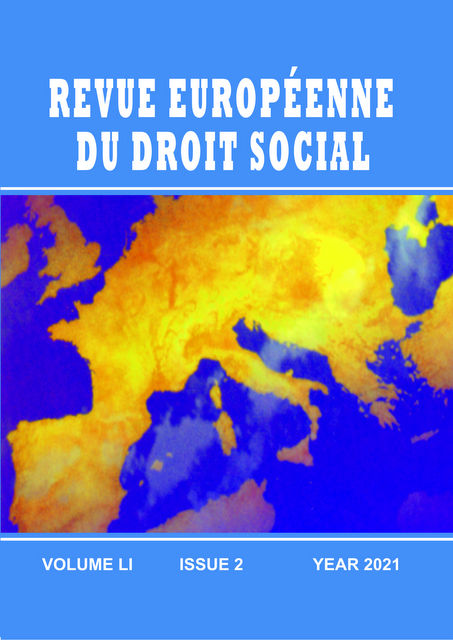LA INSPECCIÓN LABORAL Y EL TRABAJO REMOTO EN EL PERÚ
LABOR INSPECTION AND WORK REMOTE IN PERU
Author(s): Diaz Luis SerranoSubject(s): Law on Economics
Published by: Editura Bibliotheca
Keywords: Remote work; Telecommuting; Risk group; Labor inspection; Penalties for non-compliance with remote work;
Summary/Abstract: The so-called remote work is one of the forms of remote work that wascreated in Peru recently, in the scenario of COVID-19 and during the declaration of thenational health emergency, has its legal basis mainly in the following regulations: DU026-2020, Emergency Decree that establishes various exceptional and temporarymeasures to prevent the spread of the Coronavirus (COVID-19) in the national territoryand DS 010-2020-TR Supreme Decree that develops provisions for the Private Sector,on remote work provided for in Emergency Decree No. 026-2020. Norms that empowerthe employer to implement it, according to the nature of the company's activity andshould prioritize its application in the workers considered in the risk groups, thusestablished by the norms of the health sector, In this sense, it must adopt the necessaryactions to prioritize the workers considered as such, not complying with this has beenconsidered and classified in the Regulations of the Labor Inspection Law, as a veryserious labor offense, liable to a fine imposed by the inspection system. On the otherhand, it is pertinent to point out some considerations that must be taken whenimplementing remote work, it should not affect the compensation of the worker, norsocial benefits, workers should be informed of the decision to implement remote work,the issues related to safety and health at work, in such a way that their health and laborrights are mainly guaranteed. Failure to comply with this has been considered andclassified in the Regulations of the Labor Inspection Law, as a very serious laboroffense, liable to a fine imposed by the inspection system. On the other hand, it ispertinent to point out some considerations that must be taken when implementingremote work, it should not affect the compensation of the worker, nor social benefits,workers should be informed of the decision to implement remote work, the issuesrelated to safety and health at work, in such a way that their health and labor rights aremainly guaranteed. Failure to comply with this has been considered and classified in theRegulations of the Labor Inspection Law, as a very serious labor offense, liable to a fineimposed by the inspection system. On the other hand, it is pertinent to point out someconsiderations that must be taken when implementing remote work, it should not affectthe compensation of the worker, nor social benefits, workers should be informed of the decision to implement remote work, the issues related to safety and health at work, insuch a way that their health and labor rights are mainly guaranteed. It is important tonote that in Peru remote work and telework are different figures, each one has aparticular nature and a specific regulation, telework was already regulated since 2013,and it is permanent, not so, remote work, which was created recently and only for theperiod of the health emergency, that is, it has a temporary nature. It is important tohighlight that Remote Work allowed the continuity of business activity and thepreservation of the employment of thousands of workers in the country. Regarding itstemporary nature, it should be said that although it was initially established for theemergency, there are signs that it could exceed this period, even remainingpermanently in reality and in Peruvian labor legislation. In this scenario, the laborinspection expanded its scope of action to protect labor rights in the use and applicationof this new form of distance work.
Journal: Revue Européenne du Droit Social
- Issue Year: 2021
- Issue No: 2 (51)
- Page Range: 21-39
- Page Count: 19
- Language: Spanish

